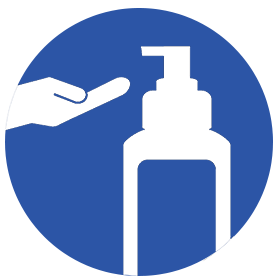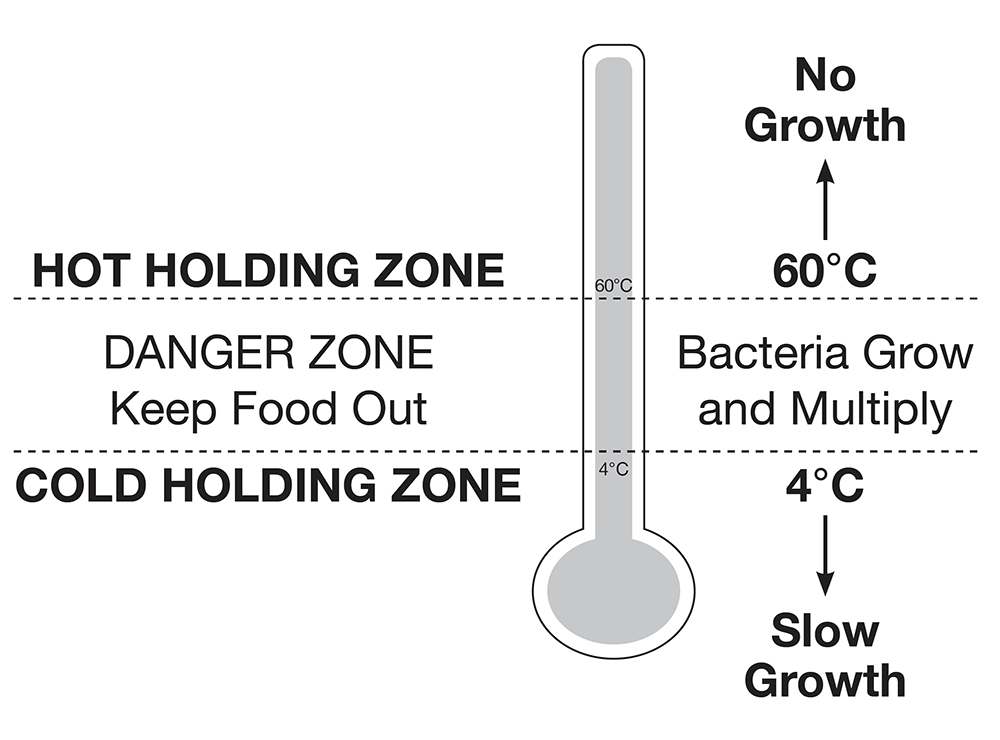Preventing Infections
 While in hospital and at home, you are at risk for infection. There are many ways to get an infection. Here are some of the ways to help protect yourself from infections:
While in hospital and at home, you are at risk for infection. There are many ways to get an infection. Here are some of the ways to help protect yourself from infections:
How can I prevent infection while I am in hospital?
- Clean hands often and well for at least 15 seconds, either using alcohol-based hand sanitizer or soap and water
- Ask any visitors to clean their hands before they come into your hospital room
- Remind your family and friends not to visit if they are sick or feeling unwell
- Wear a yellow mask at all times when outside of your own room to lower your chance of getting a cold or flu
- Wear a yellow mask in the hospital when you have visitors
- Let your nurse or doctor know if you have a sore throat, cough, shortness of breath or feel like you may have a fever
How can I prevent infection from other people?
- Wash your hands well for at least 15 seconds with soap and warm water or if using alcohol based sanitizer, rub hands until dry.
- Keep a bottle of alcohol-based hand sanitizer (with 70% alcohol) with you at all so you are able to clean your hands often especially after handling public surfaces (door handles, elevator buttons)
- Wash your hands often, especially after you use the washroom
- Wipe down telephones and door handles with disinfectant often
- Avoid large groups of people or crowds. If you go to public places, try to go when there are fewer people
- Avoid contact with people who feel sick, have flu-like illnesses, cough, cold or fevers
- Avoid public pools, hot tubs
- Cover open cuts with clean bandages
How can I prevent infection from plants and outdoors?
- Avoid gardening and potting soil
- No live plants while in hospital
- Avoid raking leaves, especially when they are wet
- Avoid standing water in blocked eaves troughs, planters, and buckets
- Avoid mouldy places, such as black mould in bathroom, basement or kitchen
- Avoid dust and dirt
How can I prevent infection from animals?
- Avoid animal droppings such as cat litter, bird cages, fish tanks
- Have someone else clean up animal droppings
- Avoid outdoor ponds
- Have your pet’s nails trimmed to prevent them from scratching you
- Wash your hands immediately after touching or being near animals
- Avoid eating, drinking or putting anything in your mouth when you are around animals
How can I prevent infection from food?
When you have cancer you may have a weakened immune system, which can make you have a higher chance of getting sick from eating food that has bacteria or germs. Bacteria and germs can be found in food if it is not properly stored, cooked or handled. Your immune system is low and you are at high risk to food poisoning so don’t eat or drink foods past their expiry date. Sometimes you may not be able to tell if food is spoiled from its look, smell or taste. If you are not sure if food is safe to eat, it is best to throw it out.
There are four basic steps to follow when you handle, cook, store or shop for food:
1. Keep it clean: Wash your hands, kitchen surfaces, and reusable shopping bags often with soap and water
- Wash your hands often with soap and warm water, especially before you touch, prepare or eat food
- Dry your hands with a paper towel or cloth. You should use a new cloth each day.
- Wash the following with warm, soapy water to lower the chance of germs spreading from one surface to another:
- Kitchen surfaces
- Dishes, utensils and cutlery
- Can openers
- The inside of the microwave
- Use at least 3 separate cutting boards: one for cooked food, one for vegetables and one for raw meat, poultry, fish and seafood
- Wash cutting boards with hot, soapy water and rinse with hot water after each use
2. Keep foods separate: Raw foods (such as meat or chicken) must be kept separate from ready-to-eat foods (such as vegetables) to prevent germs from spreading
- Avoid buying:
- Foods from open bins (bulk foods)
- Foods that are on display (raw meats on deli counter, unwrapped bakery products)
- Fruits and vegetables that are bruised, damaged or too ripe
- Check “best before” dates. Choose foods with far away expiry dates, especially with milk, cheese and eggs
- Put refrigerated foods into your shopping cart last. This will lower the amount of time the food sits at room temperature.
- Buy packages that are properly sealed and cans with no dents, bulges, cracks or leaks
3. Cook food to a high enough temperature.
- Germs that cause illness from food grow the fastest when the temperature is between 4°C (39°F) and 60°C (140°F). This is called the temperature danger zone.
- Cook food until the thickest part reaches a safe temperature to eat. Check the temperature using a digital thermometer. Clean the thermometer using warm, soapy water after you use it.
- Try to cook foods to the following temperatures:
- To lower the chance of germ build-up, refrigerate, freeze or eat the foods within 2 hours of buying or cooking them:
- Meat
- Fish and seafood
- Eggs and other dairy products
- Fresh cut or peeled fruit or vegetables
- Gravies and sauces
4. Store food and leftovers right away in the fridge or freezer at 4°C (39°F) or below. Check fridge temperature to make sure it is at or below 4°C (39°F).
- Store foods that need to be refrigerated or frozen as soon as you come home from grocery shopping. Do not leave them at room temperature
- Rotate food that is in the fridge or in the cupboard so older items are used first
- Label frozen food with the date that it was bought or made.
- There are safe time limits for home refrigerated foods and leftovers to keep them from spoiling. You can find these rules on this website.
| Item | Temperature |
|---|---|
| Poultry | 74°C (165°F) |
| Egg dishes | 74°C (165°F) |
| Ground red meat | 71°C (160°F) |
| Pork | 71°C (160°F) |
| Beef Veal Lamb |
77°C (171°F) for well done 71°C (160°F) for medium |







